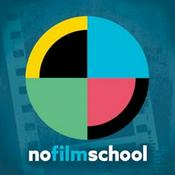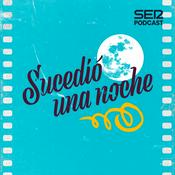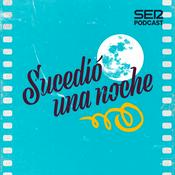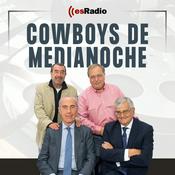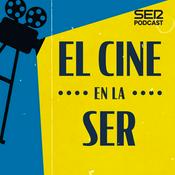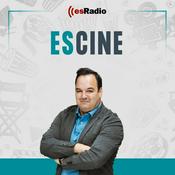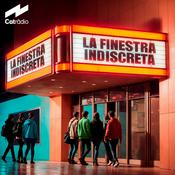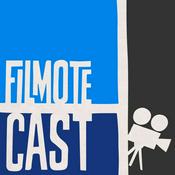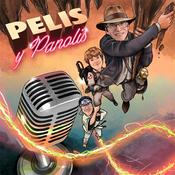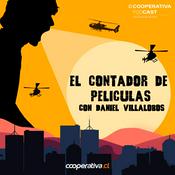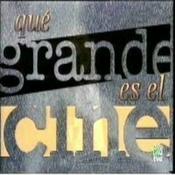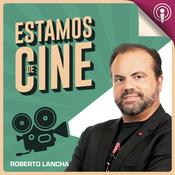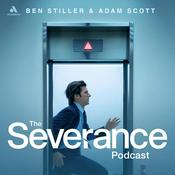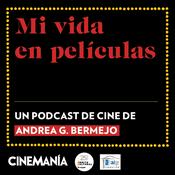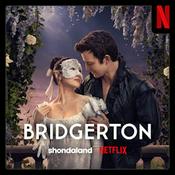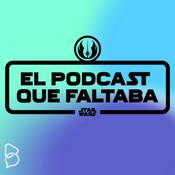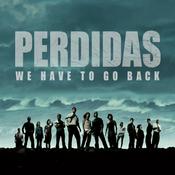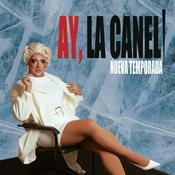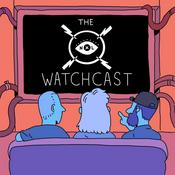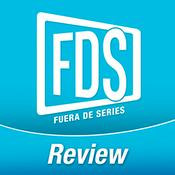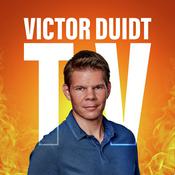886 episodios
- Producer Zainab Azizi joins GG Hawkins to break down her journey from agency mailroom to President of Raimi Productions and producing studio features like Send Help. Azizi shares how she develops original ideas, packages talent, protects projects through shifting studio mandates, and leads with a collaborative producing style. She also discusses mentoring female producers, balancing creative and financial realities in modern filmmaking, and why theatrical success for original films still matters.
In this episode, No Film School's GG Hawkins and guest Zainab Azizi discuss...
How Send Help evolved from a logline in 2019 to a theatrical release
Moving the project from Columbia Pictures to 20th and navigating studio mandate shifts
Why Sam Raimi was essential to directing the film—and how storyboards helped secure studio confidence
Packaging as a producer: attaching directors and actors through agency relationships
Casting Rachel McAdams and Dylan O’Brien and building chemistry into the film’s core dynamic
The tension between “social media value” and creative talent in casting decisions
What Azizi learned in the WME mailroom and how agencies really function behind the scenes
Different types of producers (creative, line, financing, studio producers) and protecting the “PGA” credit
Her collaborative leadership style and the “three solutions for every problem” rule
Mentorship, promoting female producers, and fostering more women-led sets
Why theatrical releases for original films still matter in 2026
Developing a Seshu Hayakawa biopic and why his story feels urgent today
The importance of sacrifice, networking, and embracing rejection early in your career
Memorable Quotes:
“My job is to find three solutions for every problem.”
“Rejection is just redirection. We celebrate rejections.”
“If it scares you, it means you’re headed the right direction.”
“You have to put yourself out there.”
Guests:
Zainab Azizi – President of Raimi Productions and producer of Send Help
Resources:
LaBelle Foundation (for adopting Cactus the foster puppy)
Producers Guild of America (PGA)
Producers United
Find No Film School everywhere:
On the Web: No Film School
Facebook: No Film School on Facebook
Twitter: No Film School on Twitter
YouTube: No Film School on YouTube
Instagram: No Film School on Instagram
📩 Send us an email with questions or feedback: [email protected]
Learn more about your ad choices. Visit megaphone.fm/adchoices - Recorded live from the Sundance Film Festival, GG Hawkins hosts a roundtable conversation with four short film directors premiering work at the festival: Kelly McCormack (How Brief), Anna Baumgarten (Balloon Animals), Ana Alpízar (Norheimsund), and Anooya Swamy (Pankaja). The filmmakers discuss the origins of their films, navigating production across Cuba, India, Canada, and the U.S., working within (and outside of) film school structures, and the deeply personal themes of grief, mother-daughter relationships, disappearance, and survival that unexpectedly connect their work.
In this episode, No Film School’s GG Hawkins and guests discuss…
Shooting narrative shorts on location in Havana, Bangalore, Vancouver, and Los Angeles
Returning to Cuba to film Norheimsund after seeking asylum in the United States
How Pankaja draws from growing up in the slums of Bangalore and confronting personal memory
Making a $6,500 microbudget short inside a real grocery store overnight
Building a short film over eight years and resisting the “proof of concept” mindset
Working within NYU’s film school structure versus creating outside institutional systems
Casting mother-daughter dynamics rooted in real-life relationships
Designing color theory, texture, cement, and dirt as emotional language
Shooting inside real police stations and navigating bureaucracy while telling stories about it
Grief as a “big soup of emotions” and balancing melancholy with comedy
Collaborating with ride-or-die creative partners
Advice for emerging filmmakers about not compromising and trusting instinct
Memorable Quotes:
“Dreaming doesn’t cost a thing.”
“Choosing oblivion.”
“We often live really simple lives in complicated worlds.”
“You are allowed not to compromise.”
Guests:
Kelly McCormack – Director, How Brief
Anna Baumgarten – Writer/Director, Balloon Animals
Ana Alpízar – Director, Norheimsund
Anooya Swamy – Writer/Director, Pankaja
Find No Film School everywhere:
On the Web: No Film School
Facebook: No Film School on Facebook
Twitter: No Film School on Twitter
YouTube: No Film School on YouTube
Instagram: No Film School on Instagram📩 Send us an email with questions or feedback: [email protected]
Learn more about your ad choices. Visit megaphone.fm/adchoices - In this episode, GG Hawkins speaks with Madison Jones and Lindsay Grossman, co-founders of The Love List, along with filmmaker Shelby Blake Bartelstein, about what makes a romance script stand out in today’s marketplace. They discuss the origins of The Love List, the evolving appetite for romance across film and television, how to craft undeniable chemistry on the page, and why specificity, vulnerability, and the grand gesture are essential tools for writers hoping to sell in the genre.
In this episode, No Film School's GG Hawkins and guests discuss...
The “meet cute” origin story behind The Love List and how a shared love of YA romance sparked a professional movement
How The Love List curates the best unproduced romance pilots and screenplays each year
Why romance remains commercially viable—and why the industry is rediscovering its power
The importance of writing what you love instead of chasing market trends
How to balance high-concept hooks with emotional authenticity
Crafting chemistry on the page through small, specific moments
Why vulnerability is the core engine of all great storytelling
The art of the grand gesture in romantic storytelling
Why television romance (including slow burns and enemies-to-lovers arcs) can be just as powerful as film
How executives identify “soul” in a script—and why that’s what ultimately sells
Memorable Quotes:
“Write what you want to watch. To me, that is the most crucial piece of advice.”
“What part of you is this healing?”
“You can tell when there’s not a soul in it.”
“It’s not about knowing whether or not they’re going to end up together. It’s about how they get there.”
Guests:
Madison Jones
Lindsay Grossman
Shelby Blake Bartelstein
Resources:
Deadline - The 2026 Love List
The Love List on Instagram - @TheLoveList26
“Change the Prophecy” Short Film
Find No Film School everywhere:
On the Web: No Film School
Facebook: No Film School on Facebook
Twitter: No Film School on Twitter
YouTube: No Film School on YouTube
Instagram: No Film School on Instagram
📩 Send us an email with questions or feedback: [email protected]
Learn more about your ad choices. Visit megaphone.fm/adchoices - Recorded live at Sundance, this episode features a wide-ranging roundtable on the current state of independent film exhibition. Host GG Hawkins speaks with festival programmers, exhibitors, and platform founders about what’s broken in the exhibition ecosystem, what’s actually working better than people realize, and how community-driven models—from art houses to new distribution tools—are reshaping how films are discovered, shown, and sustained beyond the festival circuit.
In this episode, No Film School's GG Hawkins and guests discuss…
Why art house cinemas and film festivals remain vital community hubs
The realities of audience-building beyond “market festivals” and multiplexes
How filmmakers can rethink distribution, touring, and self-exhibition
New tools and platforms helping filmmakers navigate submissions and discovery
The rise of alternative distribution models, including physical media reimagined
Why shorts, community producers, and collaboration matter more than ever
How filmmakers and exhibitors can work together more effectively
What a sustainable film community could look like in 2026
Memorable Quotes:
“Art house cinemas and independent exhibitors and film festivals are thriving because they build community.”
“Making movies is like having a baby… then you’ve got to raise it.”
“There is such an opportunity on both sides for filmmakers and exhibitors to learn how to work together.”
“Independent film is rooted in community and curation.”
Guests:
Ash Cook – Programmer, Sundance Film Festival; Festival Director, San Francisco Jewish Film Festival; Founder & CEO, Video.Storage
Tony Gapastone – Founder & Executive Director, Bravemaker
Lela Meadow-Conner – Interim Executive Director, Art House Convergence; Co-founder, The Popcorn List
Tyler Knohl – Co-founder, Hiike; Assistant Director, Boston Sci-Fi Film Festival
Brynne Norquist – Co-founder & CEO, Hiike
Aidan Dick – COO, Video.Storage; Programmer, Frameline Film Festival
Resources:
Bravemaker – https://bravemaker.org
Art House Convergence – https://arthouseconvergence.org
The Popcorn List – https://thepopcornlist.com
Hiike – https://hiike.com/
Video.Storage – https://www.videostoreage.com
Frameline Film Festival – https://www.frameline.org
Find No Film School everywhere:
On the Web: No Film School
Facebook: No Film School on Facebook
Twitter: No Film School on Twitter
YouTube: No Film School on YouTube
Instagram: No Film School on Instagram
📩 Send us an email with questions or feedback: [email protected]
Learn more about your ad choices. Visit megaphone.fm/adchoices - In this episode, we dive into the logistics, strategy, and evolving experience of getting into and attending SXSW. GG Hawkins is joined by No Film School Founder Ryan Koo and a panel of SXSW insiders: Claudette Godfrey, Peter Hall, and Francis Román, who share their personal journeys into programming and illuminate the processes behind one of the most significant festivals in the world. Whether you’re hoping to submit, attend, or just understand the inner workings, this conversation offers clarity on what to expect from the 2026 edition and beyond.
In this episode, No Film School's GG Hawkins, Ryan Koo, and guests discuss...
The different paths each SXSW programmer took to join the festival team
Why SXSW values first-time filmmakers and how they approach the programming process
Practical ways to attend SXSW (volunteering, student discounts, single tickets)
Major changes to SXSW 2026, including venue shifts, badge updates, and a new festival layout
How to best prepare your submission, including rough cut etiquette and the importance of strong film stills
Common myths about festival programming—debunked
Why meaningful networking and personal connection at SXSW can shape careers
What types of films SXSW is most excited about—and what they’re seeing too much of
Memorable Quotes:
"If a film can make you laugh in your home alone at 2 a.m. and you've worked a 20-hour day, then it's hilarious."
"If you're submitting unfinished, you should have a title card at the very beginning that says exactly where you're at."
"We're looking for that director's vision, the fingerprint on it."
"You should come to South By, and if you can’t, go to whatever local film festival is going on in your area."
Guests:
Claudette Godfrey
Peter Hall
Francis Román
Resources:
SXSW Volunteer Info
Find No Film School everywhere:
On the Web: No Film School
Facebook: No Film School on Facebook
Twitter: No Film School on Twitter
YouTube: No Film School on YouTube
Instagram: No Film School on Instagram
📩 Send us an email with questions or feedback: [email protected]
Learn more about your ad choices. Visit megaphone.fm/adchoices
Más podcasts de Cine y Televisión
Podcasts a la moda de Cine y Televisión
Acerca de The No Film School Podcast
A podcast about how to build a career in filmmaking. No Film School shares the latest opportunities and trends for anyone working in film and TV. We break news on cameras, lighting, and apps. We interview leaders in screenwriting, directing, cinematography, editing, and producing. And we answer your questions! We are dedicated to sharing knowledge with filmmakers around the globe, “no film school” required.
Sitio web del podcastEscucha The No Film School Podcast, Sucedió una noche y muchos más podcasts de todo el mundo con la aplicación de radio.es
Descarga la app gratuita: radio.es
- Añadir radios y podcasts a favoritos
- Transmisión por Wi-Fi y Bluetooth
- Carplay & Android Auto compatible
- Muchas otras funciones de la app
Descarga la app gratuita: radio.es
- Añadir radios y podcasts a favoritos
- Transmisión por Wi-Fi y Bluetooth
- Carplay & Android Auto compatible
- Muchas otras funciones de la app

The No Film School Podcast
Escanea el código,
Descarga la app,
Escucha.
Descarga la app,
Escucha.
